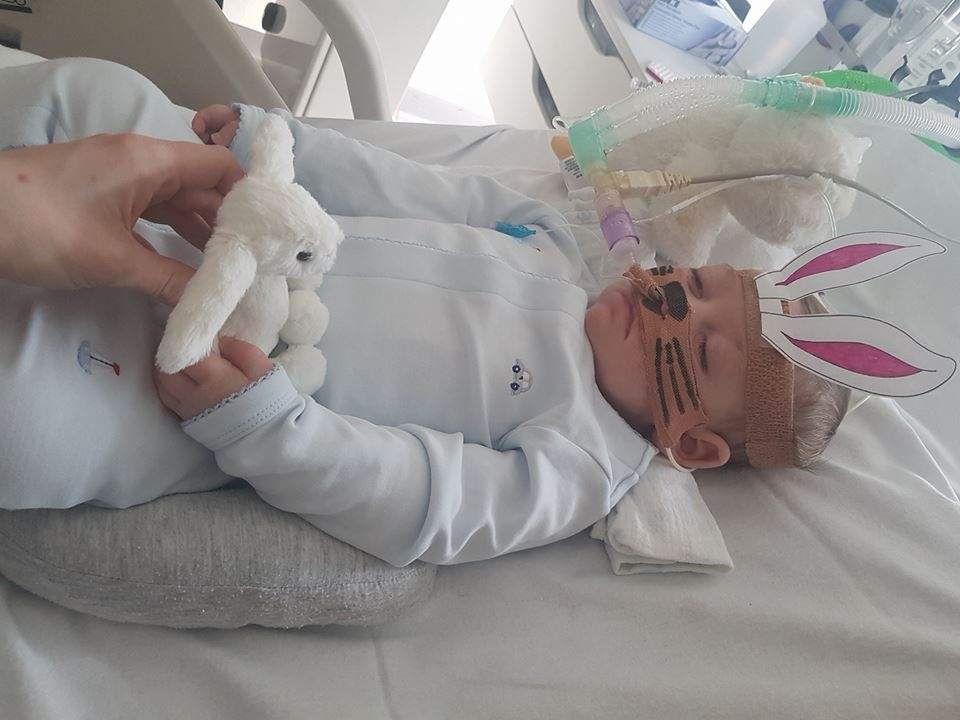The case of 11-month-old Charlie Gard’s fight for life has captivated the world, and his parents may have just received their first glimmer of hope in months. Charlie was placed on life support after he became seriously ill due to a rare RRM2B mitochondrial depletion syndrome.
Charlie’s parents wanted to take him to the United States for an experimental treatment that they hoped could improve his condition, and they raised more than $1.4 million USD to do so. But the hospital, Great Ormond Street Hospital in London, disagreed that the treatment would work and fought Charlie’s parents. The hospital argued in court that Charlie Gard should be taken off of life support. It became a contentious and internationally watched court battle, with Charlie’s parents losing appeal after appeal until the European Court of Human Rights finally ruled against them, siding with the hospital and determining that Charlie should be taken off life support.
In a final slap in the face, the hospital refused to let Charlie’s parents take him home to die.
Immediately, international outrage surrounded the decision. President Trump issued a statement saying that the United States would be “delighted” to help Charlie Gard. A Vatican children’s hospital likewise offered to take Charlie and provide him with any necessary treatment. United States lawmakers even introduced a bill that would make Charlie and his parents United States citizens.
After the controversy reached a fever pitch, Great Ormond Street Hospital finally responded by requesting a new court hearing to hear new evidence. This evidence indicated that the experimental treatment Charlie’s parents had been advocating for all along might help. The request came after two international hospitals contacted Great Ormond Street with “fresh evidence” showing positive results in nucleoside therapy for people with the same rare condition Charlie has.
The court hearing to determine Charlie’s fate began on Thursday morning, and it was an emotional day. At one point, Charlie’s parents stormed out of the courtroom after the judge misquoted them. After the hearing resumed, the judge apologized and noted that a transcript of their prior remarks had been found.
Promising medical testimony was offered during the hearing. One anonymous witness said there is new evidence regarding the treatment, which had recently been published, showing that nucleoside therapy reduced muscle weakness in mice, extended their lives, and improved brain function. Another expert witness testified from New York that keeping Charlie on the ventilator would not cause the young boy any harm.
The American doctor who stands willing to perform the experimental treatment for Charlie Gard said that, since April, additional patients with a TK2 deficiency have been given nucleoside therapy and then been evaluated. A 10% rate of “clinically meaningful success” was found in regards to the patients’ need for ventilators. The success rate could be as high as 55%, the doctor said. He also testified that British doctors could be wrong about Charlie being brain-damaged and that it could instead be an issue of muscle weakness. The doctor informed the court that he wouldn’t know Charlie’s true condition without seeing and assessing Charlie firsthand.
On Friday, the court agreed to allow the doctor to travel to London to examine Charlie. Dr. Michio Hirano will visit Great Ormond Street Hospital on Monday and Tuesday of next week and will be allowed to meet with the specialists currently treating Charlie. Dr. Hirano is a professor of neurology at the Columbia University Medical Center in New York and serves as chief of the neuromuscular division, and his research has focused on mitochondrial diseases and genetic myopathies. Dr. Hirano is also the director of the H. Houston Merritt Clinical Research Center. He has allegedly treated other people with similar conditions to Charlie’s.
High Court Judge Nicholas Francis said he was, for now, open-minded about the evidence Dr. Hirano would bring the court after personally examining Charlie. Dr. Hirano will decide if he believes that the nucleoside therapy will be beneficial to Charlie, and the court will then rule what will happen next, with Judge Francis promising a decision by July 25.







